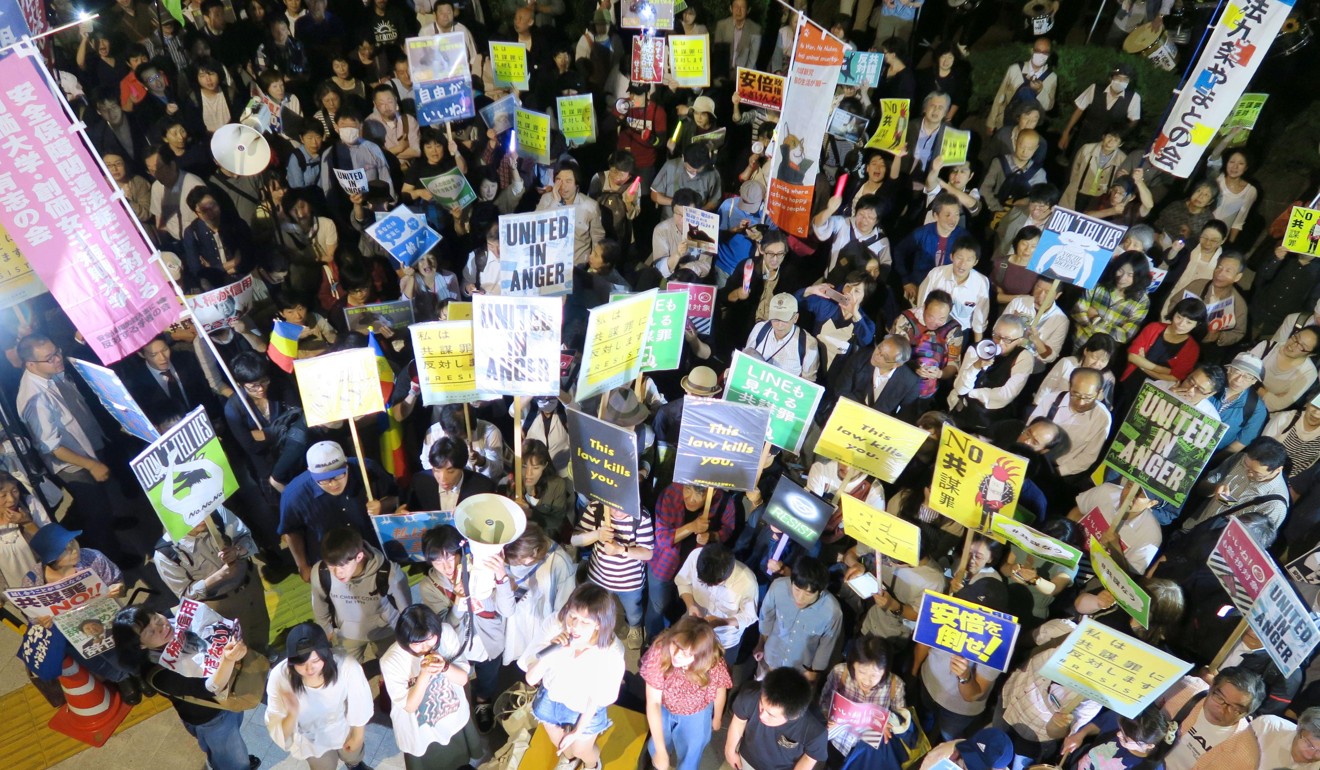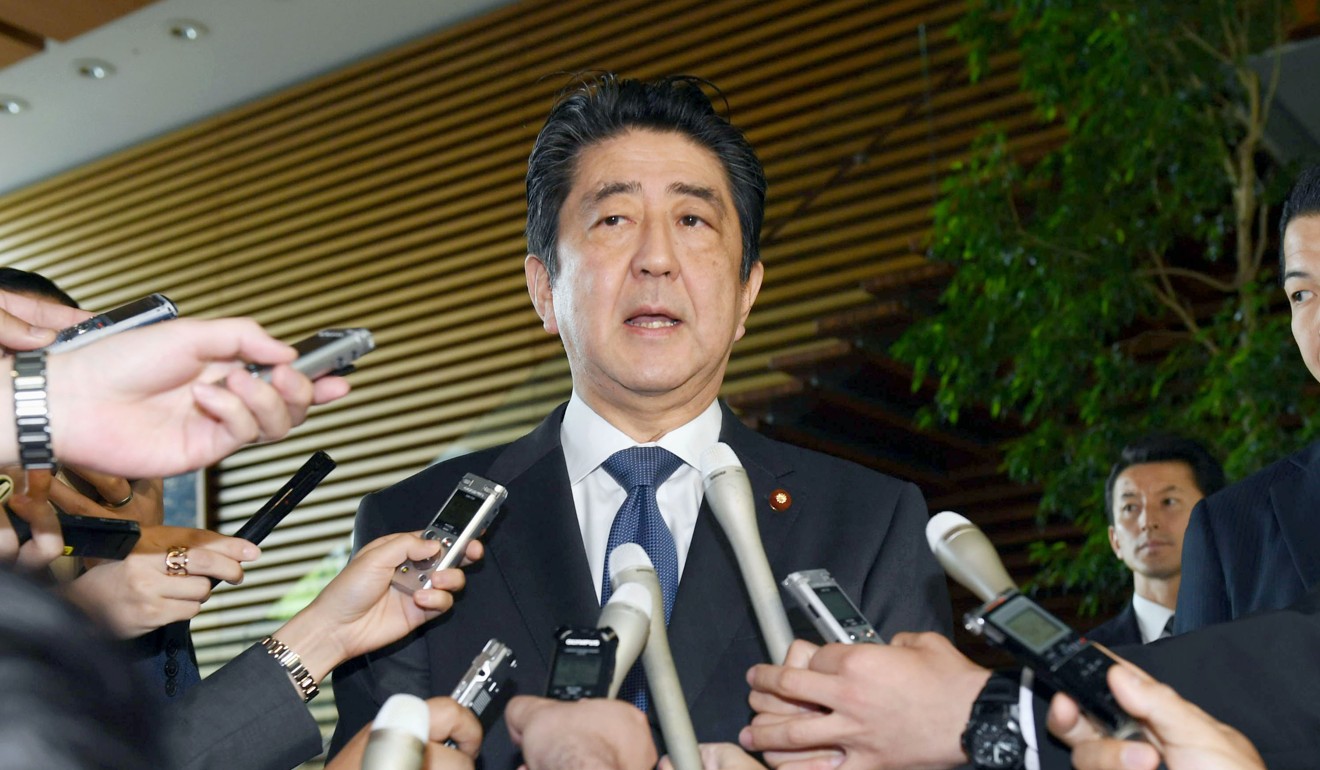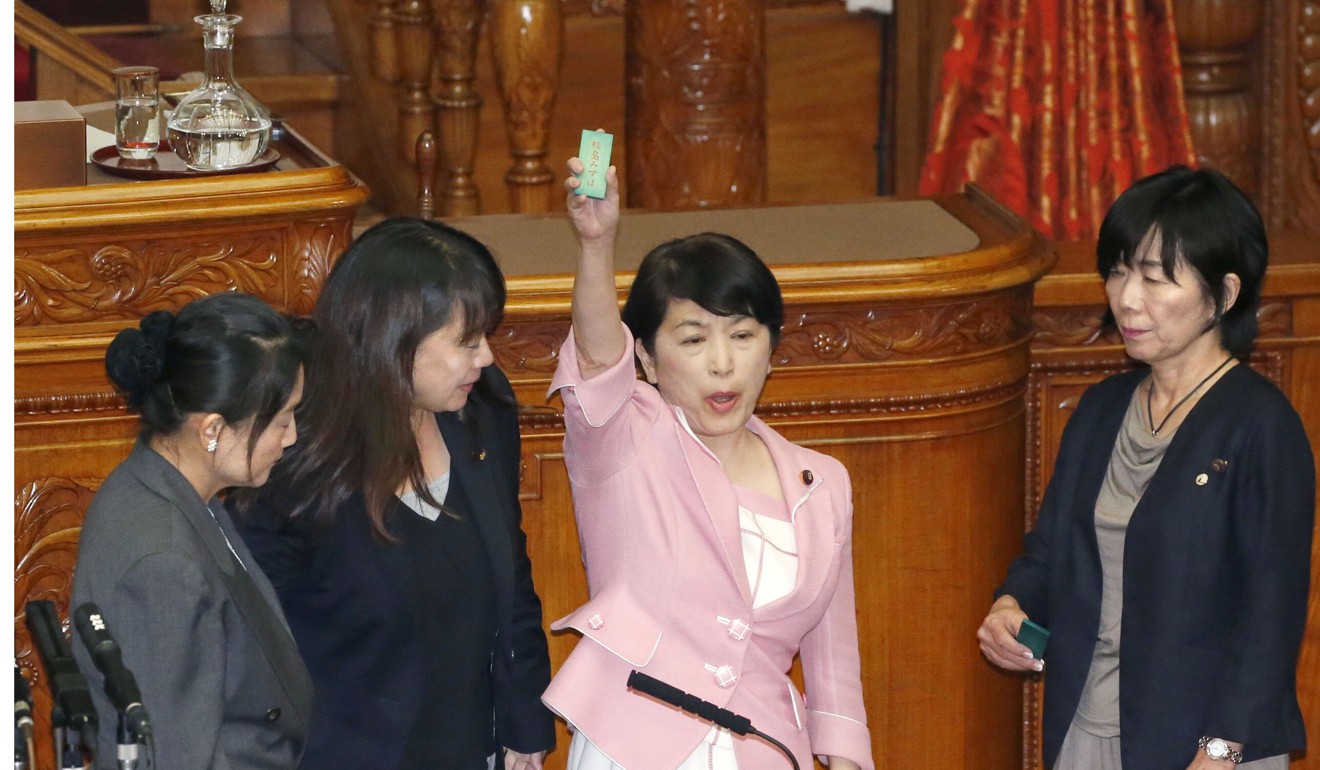
Japan passes ‘conspiracy’ bill that allows police to arrest people for planning crimes
Japanese government says legislation is aimed at preventing terrorism as Tokyo prepares to host the 2020 Olympics
Japanese Prime Minister Shinzo Abe’s government passed controversial legislation that gives prosecutors the power to monitor and arrest people in the planning stages of crimes.
The vote on the bill, which has divided the public, followed opposition party delaying tactics, protests and concerns raised by a United Nations expert - who called the legislation “defective” - and came days before the current session of parliament was set to end on June 18.
Japanese governments had tried three times previously to pass similar legislation, which officials say is needed to ratify a UN treaty aimed at global organised crime as well as to prevent terrorism as Tokyo prepares to host the 2020 Olympics.
The legislation would criminalise plotting and preparing to commit 277 “serious crimes” that critics such as the Japan Federation of Bar Associations note include acts with no obvious connection to terrorism or organised crime, such as sit-ins to protest construction of apartment buildings or copying music.

Critics say the legislation is vague and could lead to the suppression of civil liberties and excessive state surveillance.
The legislative win paves the way for Abe to push ahead with his long-held ambition to revise the pacifist constitution that has defined Japan’s security policy since the second world war. Last month, he proposed an amendment to recognise the existence of Japan’s Self-Defence Forces while maintaining Article 9, which renounces the right to war and prohibits land, sea and air forces. He wants the change to take effect by 2020.
“This fits Abe’s agenda in the run-up to a prospective national referendum on constitutional revision, and Japan’s possible involvement in future wars,” said Koichi Nakano, professor of political science at Sophia University in Tokyo.

“Both of these would require new means to control unruly citizens who object to government decisions.”
Helped by a stable economy, Abe’s support has remained resilient throughout his four-and-a-half years in office. Despite public ambiguity toward his drive to change the constitution and a probe into his alleged use of influence in helping a friend’s school project, his approval rating has remained around or above 50 per cent for several years in the face of feckless opposition.
Abe said that the bill was passed to prevent terrorism and would be an appropriate, effective way to protect the lives of Japanese people.
“It’s only three years until the Tokyo Olympics and Paralympics and so I’d like to ratify the treaty on organised crime as soon as possible so we can firmly cooperate with international society to prevent terrorism,” Abe said. “That’s why the law was enacted.”
In 2013, he secured passage of a bill that grants the government sweeping powers to declare state secrets, and two years ago he weathered protests in pushing through laws to expand the powers of Japan’s military.

Opposition Democratic Party leader Renho, who goes by one name, in a statement blasted the ruling party tactics and termed the law “brutal” legislation that violated freedom of thought.
Thousands of demonstrators gathered outside parliament on Wednesday night to voice opposition to the bill. The general public is split on the need for the law, with about 40 per cent in favour and the same proportion against it in a Kyodo News poll conducted last month. More than 77 per cent said further explanation was needed.
“Peaceful demonstrations could be prohibited for being viewed as terrorism,” with the bill, said Miyuki Masuyama, a 54-year-old woman from Ibaraki Prefecture, north of Tokyo, who joined the rally outside the Diet, adding, “Our freedom of expression will be threatened.”
Among younger people who were interviewed by Kyodo News, Takehiro Kawashiri, a 19-year-old student at Chiba University, said, “It would be disgusting if our thoughts would be a target of investigation,” adding, “the law could encourage paranoia that we might be watched. It might be difficult to freely express our opinions.”
Demonstrations were also held elsewhere in Japan including in Fukushima Prefecture in northeastern Japan and Kagoshima Prefecture in southwestern Japan, where rallies drew about 500 protesters each.
Some senior figures in Abe’s ruling Liberal Democratic Party have spoken out against rushing into a constitutional change, the next major item on Abe’s agenda. Others are concerned that he may take his eye off the ball when it comes to reviving the economy or dealing with Japan’s sliding population.
“The government shouldn’t use all its energy on constitutional debate,” Shigeru Ishiba, a senior LDP lawmaker who favours constitutional change, said.
“The party has to have a debate on what to prioritise, be it social policy, economic policy or the constitution.”
Japan’s new ‘conspiracy’ law
● It applies to the planning of the commission of 277 different crimes.
● The application of the law is limited to terrorist groups and other organised crime groups.
● The charge requires specific planning efforts such as surveying a location.
● Penalties are reduced for those who turn themselves in before the commission of a crime.
● A prison term up to five years will be applied for the planning of serious crimes, or a penalty of up to two years in prison will be applied to a conspiracy to commit lesser crimes.
● It also punishes plots made for the purpose of maintaining or expanding the illicit interests of organised crime groups.
Blloomberg Kyodo and Reuters
